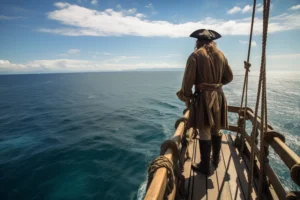Denzel Washington his best achievements as an actor and director. Denzel Washington stands as one of the most critically respected and commercially successful figures in modern cinema. With a career spanning over four decades, his impact resonates across acting, directing, and cultural representation. From award-winning performances to bold directorial choices, his legacy is carved into the history of film—not with flair, but with grit, precision, and timeless talent.
1️⃣ Award-Winning Performances That Defined Generations
The Power of “Training Day” (2001)
Perhaps no role has captured Washington’s raw intensity more than Detective Alonzo Harris in Training Day — a performance that earned him the Academy Award for Best Actor. His portrayal of a corrupt, charismatic LAPD officer redefined the antihero archetype in 21st-century cinema. The role wasn’t just career-defining; it was historic. He became the second African-American man to win Best Actor, following Sidney Poitier’s win nearly 40 years earlier.
→ Source: Oscars Official Website
“Glory” (1989): A Supporting Role, A Lasting Impact
Before Training Day, Washington had already made a splash with Glory, playing the intensely human and vulnerable Private Silas Trip in the Civil War epic. That performance earned him his first Academy Award, for Best Supporting Actor, and marked his ascent into Hollywood’s upper echelons. The scene where he silently sheds a tear while being flogged remains one of the most emotionally searing moments in American cinema.
“Fences” (2016): A Masterclass in Character Depth
Decades into his career, Washington brought August Wilson’s Fences to the screen — and reprised the role of Troy Maxson, which he had previously performed on Broadway. His acting was as fierce as ever, earning him yet another Oscar nomination. The performance was layered, tragic, and deeply authentic.
2️⃣ Elevating Cinema Through Direction
From Actor to Director: The Transition with “Antwone Fisher” (2002)
Washington’s directorial debut, Antwone Fisher, wasn’t just a safe leap into the director’s chair. It was a bold narrative about trauma, identity, and redemption—based on the real-life story of a troubled Navy man. Washington didn’t just direct; he also acted in the film, showcasing a dual command of storytelling both in front of and behind the camera.
The film earned praise from critics and audiences alike for its emotional depth and human-centered narrative, marking him as a filmmaker with a sincere voice. Notably, Washington chose to highlight a young, relatively unknown actor (Derek Luke), a decision that spoke volumes about his commitment to discovering talent and telling stories that matter.
→ Source: RogerEbert.com review of Antwone Fisher
“The Great Debaters” (2007): A Story with Cultural Weight
Five years later, Washington returned to directing with The Great Debaters, a powerful drama based on the true story of Melvin B. Tolson and the debate team at Wiley College. Beyond its historical value, the film stands out for its thoughtful pacing and compelling performances, again featuring rising Black talent and placing the focus on education and activism in 1930s Texas.
The film was nominated for a Golden Globe for Best Motion Picture – Drama and served as another example of Washington’s ability to tell stories that are socially conscious without being didactic.
→ Source: Golden Globes Awards Archive
What Makes His Direction Unique?
Washington’s directorial style is intimate and performance-driven. He focuses on the actor’s emotional truth, trusting the script and the character’s journey more than stylistic spectacle. This has earned him a rare distinction—he directs with the same integrity with which he acts.
3️⃣ Collaborations That Shaped His Career
Working with Spike Lee: “Malcolm X” (1992)
One of Washington’s most iconic performances came under the direction of Spike Lee in Malcolm X. His portrayal of the civil rights leader was more than a biographical turn—it was a transformation. The performance earned him an Academy Award nomination for Best Actor and solidified his ability to fully embody a historical figure with nuance and gravitas.
The film itself was a cultural landmark, and Washington’s involvement proved pivotal. It pushed boundaries in storytelling, gave visibility to Black history in mainstream cinema, and demonstrated how powerful collaborations between visionary directors and committed actors could redefine American film.
→ Source: Library of Congress – National Film Registry
Teaming Up with Tony Scott: Crafting Modern Action Classics
In the 2000s, Washington found a fruitful cinematic partnership with director Tony Scott. Together, they delivered a series of action-thrillers that were both commercially successful and stylistically sharp. Notable entries include:
- Man on Fire (2004): An emotionally charged revenge drama with stunning cinematography and a brooding, brutal performance from Washington.
- Déjà Vu (2006): A mind-bending thriller that blended sci-fi with heartfelt human stakes.
- The Taking of Pelham 123 (2009): A slick remake elevated by the chemistry between Washington and John Travolta.
Their collaborations stood out because Scott gave Washington the room to inject depth into genre roles, turning what could have been disposable action into emotionally resonant narratives.
→ Source: IndieWire – Tribute to Tony Scott and Denzel Washington’s collaborations
Why These Partnerships Matter
In an industry where casting can be formulaic, Washington’s alliances—whether with auteurs like Spike Lee or genre craftsmen like Tony Scott—showcase his ability to adapt, evolve, and elevate any script he touches.
4️⃣ Legacy, Recognition, and Cultural Impact
AFI Lifetime Achievement Award and Cultural Recognition
In 2019, Denzel Washington received the AFI Life Achievement Award, joining a distinguished list of cinema legends. The American Film Institute called him “an icon who reshaped the image of classic Hollywood masculinity.” The recognition wasn’t just for his acting prowess—it was also for his enduring influence on generations of actors, filmmakers, and audiences.
→ Source: AFI Tribute to Denzel Washington
More than accolades, Washington’s cultural footprint lies in how he redefined what it means to be a leading man—balancing intellect, strength, vulnerability, and moral complexity. His characters are rarely one-dimensional; even in his most villainous roles, there’s humanity.
Mentorship and Influence on New Generations
Off-screen, Washington has taken on the role of mentor, both formally and informally. Notably, he helped fund Chadwick Boseman’s acting studies at Oxford through a scholarship program. Boseman later shared that without Denzel, there would be no Black Panther. The gesture underscores Washington’s commitment to building a future for Black talent in cinema.
→ Source: The Guardian – Chadwick Boseman’s tribute to Denzel
What Makes His Legacy Enduring?
It’s not just the awards, the critical acclaim, or the box office numbers. It’s the consistency. The integrity. The refusal to accept mediocre roles or compromise artistic standards. Whether on stage, on screen, or behind the camera, Denzel Washington brings a rare authenticity that transcends trends and genre.
He’s more than a celebrated actor or respected director. He’s a benchmark—a standard by which excellence in performance and storytelling is measured.



